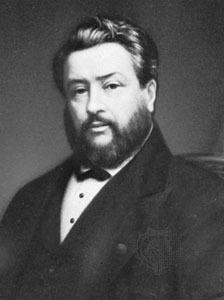 'Nowadays, we hear men tear a single sentence of Scripture from its connection, and cry, 'Eureka! Eureka!' as if they had found a new truth; and yet they have not discovered a diamond, but a piece of broken glass. Had they been able to compare spiritual things with spiritual, had they understood the analogy of the faith, and had they been acquainted with the holy learning of the great Bible students of past ages, they would not have been quite so fast in vaunting their marvellous knowledge.'
'Nowadays, we hear men tear a single sentence of Scripture from its connection, and cry, 'Eureka! Eureka!' as if they had found a new truth; and yet they have not discovered a diamond, but a piece of broken glass. Had they been able to compare spiritual things with spiritual, had they understood the analogy of the faith, and had they been acquainted with the holy learning of the great Bible students of past ages, they would not have been quite so fast in vaunting their marvellous knowledge.'C. H. Spurgeon. The Sword and the Trowel, 1874, p.221
Spurgeon was particularly concerned about believers who read fragments of the Bible with no context or with very little understanding of the whole Scriptures or the ‘analogy of the faith’.
According to ‘analogy of the faith’, the scriptures never contradict themselves, so it is important for us to study all relevant scriptures to avoid fragmented perspectives and wrong interpretations to satisfy our own agenda. This means we must study the entire Bible to be sure we do not apply any text in a way that does not fit into the overall picture of the Scriptures. We use Scripture to interpret Scripture.
Spurgeon voices his concern about some men who claim to have unearthed new truth from the Bible that no-one before had noticed. His comments highlight some key issues which are of continuing relevance. Now taking into account the 'analogy of faith' would not solve all our hermeneutical problems, but it might help us avoid some of them. Danger exists when verses or phrase are ripped out of their

